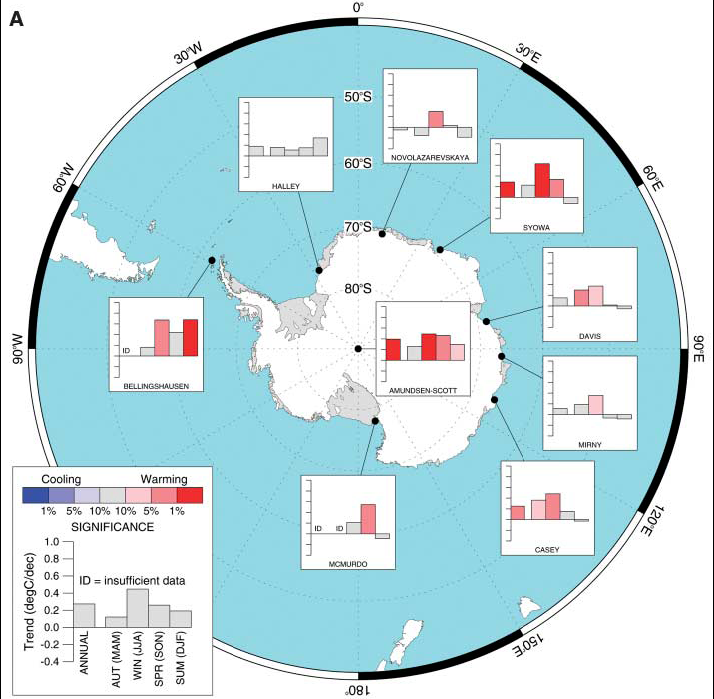Guest Commentary from Mauri S. Pelto
I get asked at least once a day about the future prognosis for alpine glaciers and whether they have a future. I will focus here on North American glaciers whose mass balance measurements in the West from 1984-2005 indicate a declining trend. The trend suggests that all of the glaciers are out of balance and that some will disappear. The question is determining which glaciers are merely out of equilibrium and can retreat to a position of equilibrium, and which are in complete disequilibrium and will melt away? Let me explain.
[Read more…] about Glacier Mass Balance: equilibrium or disequilibrium response?
 There has been a bit of a flap here at the University of Washington over the state of the snowpack in United States Pacific Northwest region. The Seattle city mayor, Greg Nickels (a well known advocate for city-based CO2 reduction initiatives) wrote in an
There has been a bit of a flap here at the University of Washington over the state of the snowpack in United States Pacific Northwest region. The Seattle city mayor, Greg Nickels (a well known advocate for city-based CO2 reduction initiatives) wrote in an 